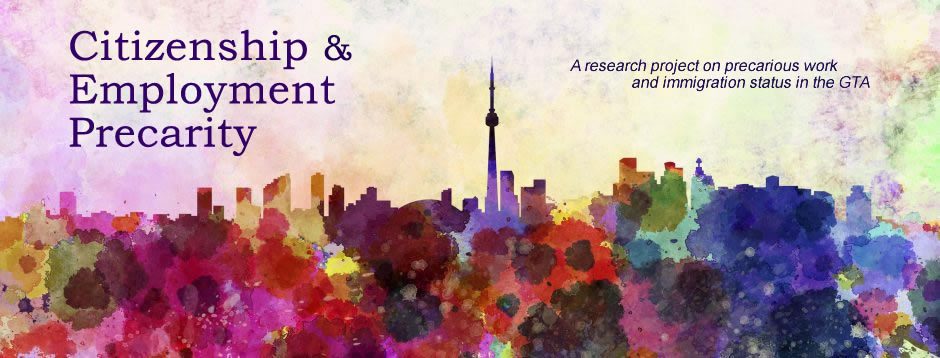Multiple Jeopardy – Research Briefs
This is the second community report from this collaboration. It examines the complex impacts of the COVID-19 pandemic on non-status migrants (NSMs) in the GTA, focusing on families, health, and work. How did this already highly vulnerable population cope? How did the additional jeopardy of precarious immigration status intersect with low-income work, racialization and gender to shape experiences? The Briefs describe the harmful and potentially long-lasting impacts of the pandemic for this population. It details strategies and key points of support that contributed to their ability to survive amid enormous stress. Our findings also reveal the limited effectiveness of policy change when the specific needs of a target population are ignored, and when policy changes are not effectively communicated.
This is the first community report from a collaborative research project conducted by the FCJ Refugee Centre and the CEP project. The report is based on a survey of 195 respondents, current or former recipients of services from FCJ. The survey examines the impacts of the pandemic on respondents and their families by tracking pre-pandemic to pandemic changes in several areas. This report focuses on changes in immigration status, work, housing, health and social supports.
The Project
The “FCJ-CEP COVID-19 project” is short for a project on “Non-Status migrant exclusion and responses under COVID-19 in the GTA.” The collaborative project is directed by Luin Goldring (York University) and Patricia Landolt (University of Toronto) in collaboration with the FCJ Refugee Centre. Francisco Rico-Martínez and Loly Rico, co-directors of the Centre, were engaged in developing the project. Diana Gallego and Natasha Rollings also directed the FCJ team. Francisco Rico-Martínez is deeply missed.
This project examines impacts of the COVID-19 pandemic on precarious legal status migrants who live and/or work in Toronto. Precarious status includes people who lack authorization to live and/or work in Canada, as well as people with temporary and probationary statuses. The project builds on the academic team’s project on Citizenship and Employment Precarity.
The goals of the project are to:
- Study the experiences, impacts, and strategies of current and former non-status individuals and their families in the GTA for dealing with the global pandemic
- Contribute to knowledge about the differential impacts of the pandemic and lockdowns for this understudied and difficult to reach population
- Generate knowledge relevant to FCJ and other organizations working with and on non-status migrants
The research team used two data collection strategies. First, the team developed and implemented a telephone survey among the non-status and previously non-status households receiving support from the FCJ Refugee Centre. Second, the team conducted in-depth interviews with 27 of the survey respondents via zoom.
The first community report, Pandemic Precarities, presents data from the FCJ-CEP survey. A second report, Multiple Jeopardy, offers an analysis 27 in-depth interviews. These materials are also posted on the FCJ website.
The research was supported by a SSHRC Partnership Engage COVID-19 Special Initiative grant and the FCJ Refugee Centre.
